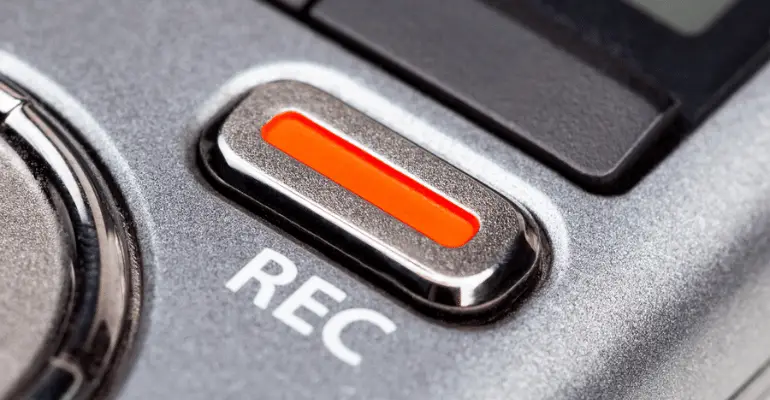Do I Have a Case for Constructive Discharge?

What is Constructive Discharge?
People quit their jobs for a number of reasons. Often, life circumstances change, or the job just isn’t the right fit. In the case of constructive discharge, a work environment becomes so hostile and intolerable an individual is forced to quit.
Is constructive discharge illegal? Yes.
According to the Equal Employment Opportunity Commission (EEOC), “discriminatory practices… also include constructive discharge or forcing an employee to resign by making the work environment so intolerable a reasonable person would not be able to stay.” Does this sound like what has happened to you?
What Constitutes Intolerable Working Conditions?
A person who is forced to quit due to intolerable working conditions may have been subject to unlawful harassment or discrimination. This can include but is not limited to:
- Sexual Harassment
- Sex or Gender Discrimination
- Pregnancy Discrimination
- Religious Discrimination
- Age Discrimination
- Race Discrimination
- Disability Discrimination
- Consistent Workplace Bullying, Humiliation, Badgering, or Harassment
If proven, any of these types of intolerable working conditions may meet the lawful requirements of constructive discharge. In addition, there are other circumstances that may meet the conditions, including:
- A reassignment to menial work
- Pay or hour decreases without adequate justification
- Demotions, job responsibility removal without reason, and forced retirement
Sometimes, people believe they have grounds for filing a case based on certain behaviors, such as mean looks or whispering between co-workers and/or supervisors. Although uncomfortable, these behaviors are not likely to support a constructive discharge. Also, if you believe that someone may feel a certain negative or hostile way towards you for whatever reason, that does not in and of itself constitute constructive discharge.
The Burden of Proof
The burden of proof when it comes to constructive discharge is on the employee. In order to establish constructive discharge, the environment must be truly intolerable not simply uncomfortable. Typically, there needs to be some evidence that shows that the employee contacted their supervisor, a company human resources professional, or other senior leaders or bosses regarding the ongoing intolerable working conditions. Further, the employee will need to show that the employer failed to take action to address the intolerable conditions. Lastly, the hostility must be directed at you based on a protected status such as age, sex, race, religion or because you engaged in protected activity such as complaining about harassment, filing a worker’s compensation claim, or whistleblowing. Generalized hostility (“my boss yells at me”) will not support an unlawful constructive discharge or termination.
A legal claim needs to be filed promptly before the statute of limitations runs out. That is why it is important to contact an employment law attorney as soon as possible after you are forced to quit and you feel you may meet the requirements for constructive discharge.
If you were forced to quit due to discriminatory actions, such as the ones listed above, it is critical to know that the U.S. Supreme Court ruled in 2016 that the clock on the statute of limitations starts when the employee gives notice, not when the last discriminatory incident occurred.
Constructive Discharge and Unemployment Benefits
When someone has to resign due to intolerable working conditions, this may be considered a termination in the eyes of the law. This means that you may be entitled to unemployment benefits in Florida, among other potential compensatory damages. If you can prove you had no reasonable alternative but to leave your employment because of the hostile environment, in the eyes of the law it is not entirely unlike being fired because of sex, race, age, or other discriminatory practices.
Florida unemployment eligibility requirements also specifically say that “You must have lost your job through no fault of your own, so you must not have quit for personal reasons or been terminated for malicious misconduct (poor job performance does not disqualify you).”
This “personal reasons” phrase does not include the circumstances that would equate to constructive discharge.
Constructive Discharge and Wrongful Termination
The circumstances surrounding a case for constructive discharge can make the issue seen in the eyes of the laws as a case for wrongful termination. This type of claim may have to be filed with the Equal Employment Opportunity Commission (EEOC). In Florida, you only have 300 days to file a charge of discrimination with the EEOC and its state counterpart, the Florida Commission on Human Rights.
In addition, there are a few other areas that may have affected you or someone you care about. If you were retaliated against after you:
- Needed to take leave under the Family Medical Leave Act (FMLA),
- Attempted to get overtime pay to which you believed you were entitled to receive
- Sought a reasonable accommodation under the Americans With Disabilities Act (ADA)
- Filed a worker’s compensation claim
- Made a whistleblower complaint and became subject to a hostile work environment
Retaliation may include a change in duties, discriminatory practices, harassment, etc. This could potentially form the basis for a claim of unlawful termination, often referred to as wrongful termination.
Understanding Your Rights
You do not need to know all of the legal system’s intricate processes and procedures on how to prove constructive discharge. The experienced, dedicated Florida employment law attorneys at Wenzel Fenton Cabassa PA are here to help.
Anyone can become a victim of illegal workplace actions. Clients often come to us after having quit due to an intolerable working environment, being fired, laid off, or downsized based on unlawful or discriminatory reasons. You don’t have to do this alone. We’ve helped thousands of others just like you.
Our priority is to help you understand your rights as an employee and get the justice you deserve.
At your free initial consultation, we will evaluate your case and analyze the events that led to you having to make the difficult decision to quit. Professional legal advice by an employment law attorney in a timely manner makes a huge impact on whether your rights as an employee will be advocated for to the fullest extent of the law. Take action and contact an attorney as soon as possible to seek justice.
At Wenzel Fenton Cabassa, P.A., we protect employee rights and we can help you understand constructive discharge as it relates to your employment situation. Contact us today for your free case evaluation.
Please Note: At the time this article was written, the information contained within it was current based on the prevailing law at the time. Laws and precedents are subject to change, so this information may not be up to date. Always speak with a law firm regarding any legal situation to get the most current information available.
Related Posts
Recent Posts
- False Claims Act Retaliation & Your Rights
- Fired for Being Pregnant? 5 Situations When You Should Call an Employment Lawyer
- Can My Boss Take My Tips? The Laws of Tip Ownership
- What Does “Meets FCRA Requirements” Mean?
- Can Your Employer Contact You While on Medical Leave? Know Your FMLA Rights in Florida
Contact Us

FREE HELP GUIDES
Dealing with unpaid wages, discrimination or wrongful termination? Get the information you need to protect your workplace rights. We offer employment law resources to help you fight for workplace justice.





